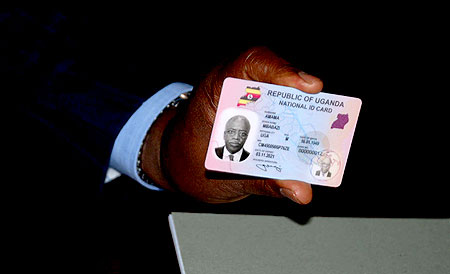Summary:
- The government has waived fees for renewing or replacing national IDs but increased charges for changing personal details. Additionally, a new policy aims to regulate early childhood education for better outcomes.
KAMPALA, (Examiner) – Ugandan citizens will no longer incur fees for renewing or replacing their national identification cards. This decision aims to alleviate financial burdens on individuals. Previously, citizens had to pay Shs50,000 for these services, along with an additional charge of Shs40,000 for late registration, which has also been waived.
However, there’s a caveat. Changing personal details on the ID card will now come at a significantly higher cost of Shs300,000, a substantial increase from the previous Shs50,000 fee. Dr. Chris Baryomunsi, the Minister for ICT and National Guidance, explained this change, citing frivolous reasons for altering information as the rationale behind the fee hike.
Interestingly, certain life events like marriage or divorce that necessitate changes in particulars will not incur any charges, according to the Cabinet decision. These adjustments are set to take effect on June 1, coinciding with the mass registration and renewal of national identification.
Dr. Baryomunsi outlined the government’s strategy of implementing a two-fold approach, emphasizing mass registration and renewal. The forthcoming exercise on June 1 will introduce new integrated electronic IDs equipped with encrypted data and features to serve various purposes and facilitate comprehensive citizen information management.
During a press briefing at the Uganda Media Centre, Dr. Baryomunsi also highlighted another significant Cabinet decision: the approval of the early childhood care and education policy. This policy aims to regulate the teaching and learning processes for pre-primary children, especially those under six years old.
Under this policy, the government plans to oversee the content and syllabus taught to young children, ensuring quality early childhood care and education. Dr. Baryomunsi stressed the importance of starting primary education at the age of six, based on scientific research supporting this approach.
In summary, the government’s recent decisions regarding national identification services and early childhood education policy reflect a dual focus on financial accessibility and educational quality, aiming to streamline processes and enhance outcomes for citizens across Uganda.

